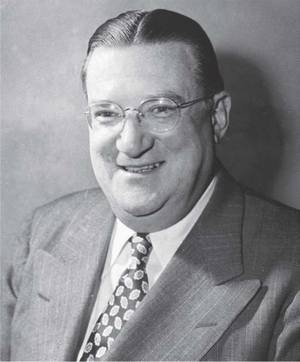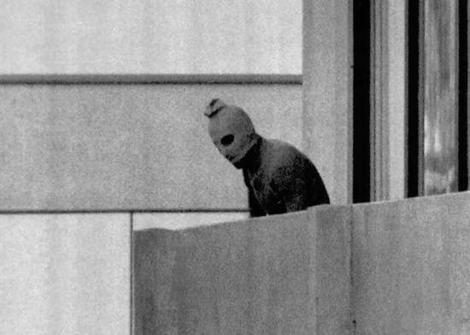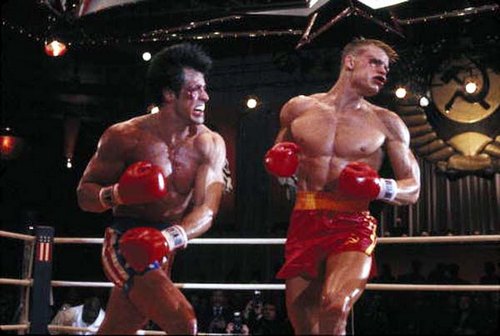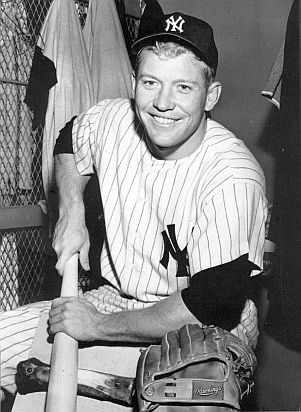People love sports but sometimes seem to forget that athletes and other people in the sports industry are people too. People with emotions and feelings. And so, when they get pissed off, they react in the same way we would, with a swift middle finger. Except in their case, they do dramatic and totally awesome things like this.
1.
Walter O’Malley doesn’t get his way, so he’s not playing
For the ten year period from 1947 to 1957, baseball revolved around the city of New York. Between the New York Yankees, New York Giants, and Brooklyn Dodgers, they won 17 pennants and 9 World Series championships. There were New York Subway Series’ 7 times during that period. During this time the owner of the Dodgers, Walter O’Malley, was looking for a spot to build a new ballpark. Ebbets Field was beloved by the fans, but it was old, dilapidated, and poorly served by public transportation. He wanted to keep the team in Brooklyn, if possible. However, he ran into trouble in the form of City Construction Coordinator Robert Moses.

The Master Builder… of models.
Moses wanted to force O’Malley to build his new stadium across the river, in Queens. In fact, he wanted him to build it on the land that would eventually become Shea Stadium, the really bad home of the New York Mets, several years later. Moses foresaw a ballpark built by the city of New York, and owned by the city of New York. O’Malley, on the other hand, had made his fortune in the real estate business, and if he was going to build something, he was going to own that thing. Moses blocked every attempt O’Malley made to build a stadium in Brooklyn. Old Walt got frustrated as hell, and contemplated murder, presumably. Then he came up with a more devious idea. During the 1956 World Series, a contingent from the city of Los Angeles had shown up and had tried to convince an MLB team to move out west. O’Malley decided to teach this bastard Moses a lesson: if he couldn’t have his stadium in Brooklyn, then he was going to walk.

Does this man LOOK like he’s going to put up with your BS?
He made a few calls, had a couple of conversations, and the deal was made. The Brooklyn Dodgers became the Los Angeles Dodgers. But the flipping off wasn’t done yet. He knew his friend Horace Stoneham, who owned the New York Giants, was having a tough time finding a spot for a new stadium as well. O’Malley figured, what the hell, why not? He got a deal done with the city of San Francisco, and Stoneham decided he was in a California state of mind too. So, after the 1957 season, two of baseball’s oldest and most storied franchises packed their bags and left town, only returning a few times to face the Yankees in the World Series again. O’Malley was vilified by Brooklyn fans, perhaps unfairly, since, after all, he didn’t really have a choice. It was either move, or be known as the Flushing Dodgers, and really, which do you think is worse?

Giants Fans. They simply have no class at all.
2.
America gets screwed by a Godfather with a grudge
The 1972 Olympic Games in Munich were probably the worst in history. No, not anything about thrilling espionage and Israelis, we’re talking about how in 1972, America got totally screwed in the basketball tourney.

Those crazy foreigners, with their strange fashion sense and their insane “jihad,” whatever that is.
Since basketball was invented in America (by a Canadian), it makes sense that we would kick ass at the sport, winning gold at the Olympics all the time. Since the Olympics were just another Cold War battleground, the Soviet Union decided they needed to beat the Americans at their own game, to make up for the fact that they were about to be beaten at a game they totally stole from the Canadians 8 years later. Yeah, that didn’t make much sense to us either. Anyways, the Soviet Union built up a team, and they came to Munich packing. America and Russia beat the tar out of the rest of the world’s basketball teams, and met each other in the Gold Medal game.

Movie adaptation of the events.
The game was hotly contested, neither side giving ground. With three seconds left in the game, the Soviets led 49-48, when an American was fouled. He made both free throws to give the Capitalists a one point lead. Then a scoreboard crisis started a crazy chain of events. The officials were confused as to whether the Soviets called a time out prior to the second free throw, or whether the Soviets needed to inbound the ball. In stepped Renato William Jones, president of FIBA. Still angry that we shot Mussolini, he decided to put a nefarious plan into action. He instructed the scorekeepers to stop the clock and the referees to give the ball back to the Soviets for another chance. He had no authority to do so, but no one questioned him, presumably because he knew where they lived.
When the Soviets failed to do anything with their second chance, Jones gave them yet another one, and this time, the Soviets sunk a basket as the clock expired, giving the Soviets the win 51-50. Pandemonium erupted, but the damage was done. Jones would later go on to tell the press that “ America needs to learn how to lose, even when they think they are right.” Thanks for the morals lesson, Snidely Whiplash.

3.
Messersmith doesn’t take insult lightly, brings down institution
Believe it or not, there was a time before free agency in sports. In baseball, for almost 100 years, every player contract included what was known as a reserve clause, which allowed a club to renew a 1 year contract without permission of the player for as many years as they wanted, virtually chaining a player to the team they originally signed with and keeping salaries extraordinarily low.

This man played for less money then you probably make now. And he still found the money to get wasted every night.
In 1975, Andy Messersmith, a pitcher for the Dodgers, went to Spring Training and negotiated his new contract. He asked for a no-trade clause, which was swiftly denied. Then somebody in the Dodgers management said something personal to Messersmith, who got so pissed, he left the room. Nobody present has said what the insult was, but it must have been a doozy.

Perhaps they called him out on his buttchin?
So, Messersmith, angry at the entire organization, played the entire season without a contract, then hooked up with another pitcher who had also been screwed by the reserve clause during 1975, a chap with named Dave McNally, and went to court, challenging that the reserve clause was in direct violation to the 13th Amendment to the Constitution. For those of you unfamiliar with the Constitution (some Americans you are) the 13th Amendment prohibits slavery or forced labor. Together with Marvin Miller, the head of the new Player’s Union, they brought their case before an arbiter, who declared that the reserve clause was unconstitutional, and both players were free agents. Messersmith would sign a huge (for the time) contract with the Braves, and lived happily ever after, proving that you don’t mess with the Messer. Yes, we just made that up.







